As local media companies scrambled to stay in business this week, the giant German publisher of our most important magazines pulled the plug on them - and about 250 jobs - with no warning. It claimed the COVID-19 crisis - and the government's handling of it - had made its business "untenable." Does that stack up? And is it really all over for our much-loved top selling titles?
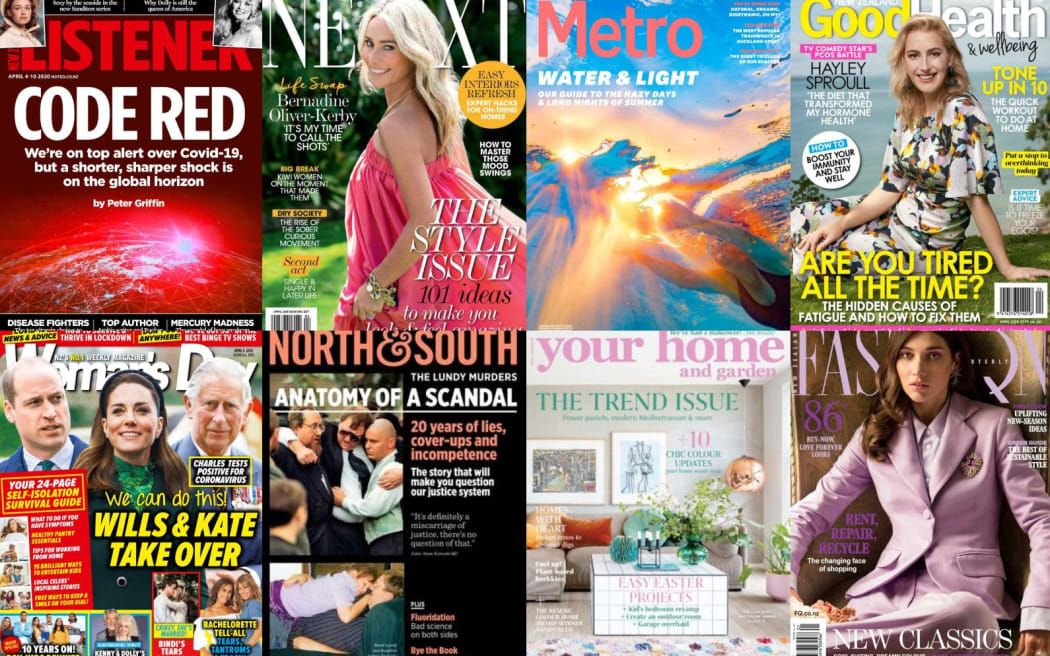
Photo: Bauer
In the time before COVID-19, Retail chain Harvey Norman was famous for its shouty and frequent entreaties to come on down for bargains with easy terms arranged.
When it got a green light to resume selling some essential goods online this week it took its ads down a few notches.
Its radio ads now end with the familiar Harvey Norman voice saying soberly: “Thank you for your service”.
But this week the Australian-owned company was also in the headlines for telling landlords of its stores they would not pay rent while they were closed.
Different times.
With the economy at a near standstill right now many businesses have nothing at all to advertise. That’s choking the revenue of media companies which depend on them.
In the past seven days the consequences have become painfully clear.
MediaWorks has asked its employees to take a 15 per cent pay cut to save the business. The New Zealand Herald and Newstalk ZB’s owner NZME warned darkly that the “scope and scale of business" must change.
With all top sport on hold right now, NZME closed Radio Sport and it made some sports reporters redundant later in the week.
The problems are acute for Sky TV as well, though Sky Sport did launch one new show about top rugby players coping with Covid-19 lockdown life.
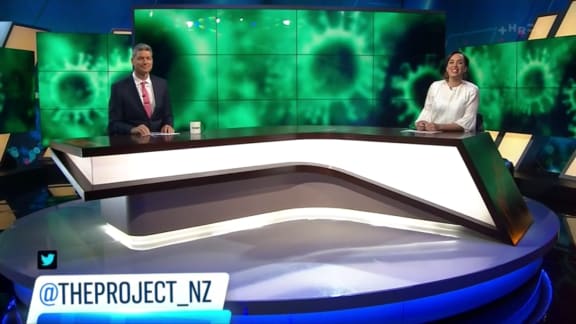
Sign of the times: physically-distanced hosts on Three's 'The Project' - with COVID backdrop. Photo: screenshot / Three
Meanwhile, ads in the papers have been thinning out too. Even in the digital age, printed papers still bring in the bulk of income for our biggest publisher Stuff - which this week asked its staff to use up leave to help cut costs.
TVNZ told staff on Wednesday it had applied for the government's wage subsidies for them too because ad revenue was already dropping away.
But it was the sudden and shocking shutdown of the biggest publisher of our magazines that led the news on Thursday - even after our biggest 24-hour jump yet in COVID-19 cases was revealed soon after.
"The decision to close the business is effective as of April 2, 2020," said an unequivocal statement issued from Bauer Media headquarters in Germany - which made no mention of 237 full time jobs coming to an end. There was no warning for staff before they were told via conference call - and no prospect of review.
And - like Radio Sport’s sudden closure last Monday - there won't even be a final farewell opportunity for the likes of the Listener - part of national culture since 1939 - or the 87 year-old New Zealand Woman's Weekly.
North and South and Metro, which broke new ground in lifestyle journalism and investigative reporting, will also just vanish.
Just one day earlier, finance minister Grant Robertson said "medium term" targeted assistance for the media industry would be worked out soon. Bauer didn’t wait for that - and it didn't apply for the government's 12-week wage subsidy scheme to retain its staff.
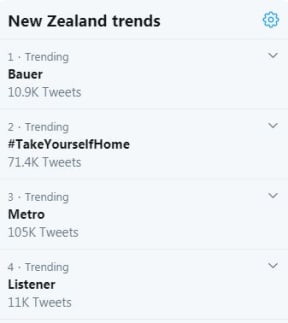
Bauer bailing out of New Zealand's top magazines was trending on Twitter on Thursday. Photo: screenshot
So why did the German giants bail out of this country - even before a possible bail-out?
Bauer Media is a global conglomerate based in Germany which owns over 600 magazines, 400 digital media outlets, and over 100 radio and television stations in 17 countries. It has been keen to sell assets in Australia and New Zealand for a long time - and would probably have quit this country at some point anyway.
Brendon Hill, the chief executive of Bauer's Australia-New Zealand operations said in a statement the volume of ads will never get back to pre-COVID-19 crisis levels.
Some cash cows for the company in the past - like Air NZ’s in-flight magazine Kia Ora and streetside giveaway Property Press are no use right now.
To make things worse in the short term. Bauer Media can’t get its top-selling titles into most shops during the lockdown. And they can’t even be sold in the supermarkets that are open because the government suddenly decided last week some local papers and all magazines are ‘non-essential’ and it believes printing and distributing them was too risky at Level 4.
“We understand the New Zealand government’s decision to move to Covid-19 Level 4, but it has put our business in an untenable position,' said Brendon Hill.
However the likes of TV Guide, North and South and Metro still have stable and substantial sales. Readers would have returned to them when the lockdown ends. The Listener still has more than 30,000 signed-up subscribers.
Last-minute, bottom-dollar offer

Paul Dykzeul, Bauer Media's former long-serving CEO in New Zealand. Photo: supplied
Newshub reported that Bauer offered to offload the titles to the government - a move that could have let them off the hook for redundancy costs.
But the government had no interest in owning any more of the media than it already does. And as former long-serving Listener journalist Gordon Campbell put it in Scoop.co.nz:
"Imagine the screams of outrage over PM Jacinda Ardern ending up as owner of the NZ Woman’s Weekly."
On Thursday, the prime minister insisted Bauer didn’t push back when magazines where suddenly slated as 'non-essential' by her own Ministry for Culture and Heritage last week.
But Bauer’s spokesperson - from the Sherson Willis PR firm hired to handle the flak - said Bauer did press the Ministry for change as a member of the Magazine Publishers Association.
Paul Dykzeul was hired to lead the company here when Bauer Media moved into New Zealand in 2012. Three years ago he crossed the Tasman to run the company’s entire Australia and New Zealand division until he retired last December.
“No doubt they have been working on this for some time,” he told Mediawatch.
“Bauer is involved in much more media than just magazines now. They’ve been looking at publishing business around the world five years ago and exited from some countries because the model is in decline,” Dykzeul said.
“The Germans are very pragmatic in the way they decide things and they don’t have the emotional links to the products. Historically media families like the Murdochs and the Packers have had strong emotional links to media. That’s not how (Bauer) works," he said.
“The German model was to try and get dominant positions wherever they went. In New Zealand a dominant position is still not a very ‘big’ position,” Dykzeul said.
“Bauer doesn’t have magazines like The Listener and Metro anywhere in the world. They don't make the profits to satisfy a large corporation but they still have a place. But with fewer overheads, these magazines could survive,’ he said.
If Bauer Media says "the business is no longer viable" will other owners come forward for the best publications?
Paul Dykzeul said he was "absolutely confident" the Listener would return under new management.
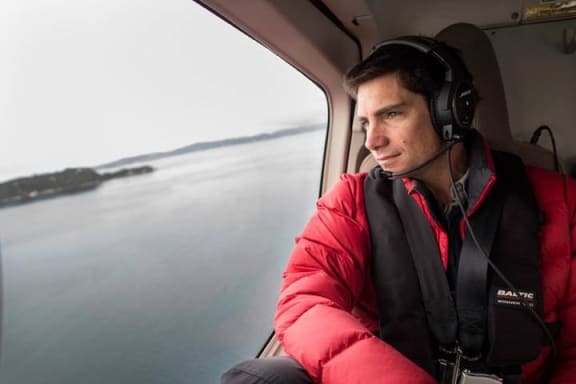
The editor of New Zealand Geographic magazine James Frankham Photo: supplied
One of those is Kowhai Media, publisher of multi-award NZ Geographic - but he's not so confident.
"Right now that's a real long shot,"Kowhai manager James Frankham told Mediawatch
"Someone could come in and pick up something like the Listener and have a crack at it but we're not in the same market we were just two months ago." he said.
He’s also a board member of the Magazine Publishers Association which tried to change the government’s mind about the rule that’s put them out of action temporarily - and hurt their businesses.
“We have been speaking with the Ministry for Culture and Heritage about this pretty much day and night for the past week and saying that (the Bauer closure) is exactly the kind of thing that they should be expecting will happen under the current policy settings,” James Frankham told Mediawatch.
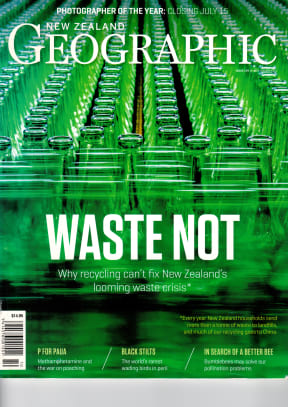
Photo: supplied
“So while I was surprised at how quickly it was announced it was everything that we were predicting. This is what happens when a publisher of any sort cannot get their product to market," he said.
"We can’t get into supermarkets are present. We can’t get it through the postal service. It’s no surprise really that Bauer realised they were in an untenable position -and it was exacerbated by poor advertising returns too,“ he said.
“I think the government is necessarily making very coarse decisions and then trying to get a high degree of resolution as they work through those with officials. That’s what they have to do to be able to respond quickly and we understand this,” said James Frankham, whose next issue of NZ Geographic was due to be published the day after the initial lockdown period.
“When they came out with the decision that of all media magazines alone we are nonessential . . . it means that of all products in supermarkets, magazines alone are banned. And of all media outlets New Zealand magazines alone are not allowed to operate," he said.
“Printing is highly automated with a very low level of touch and it uses paper that is the most resilient to the virus. Then it’s also going through essential business services to get to the end user through retail distributors. It uses the postal network the Prime Minister was recommending community newspapers take - so I don’t think that the decision is as refined as it could be," said James Frankham.


